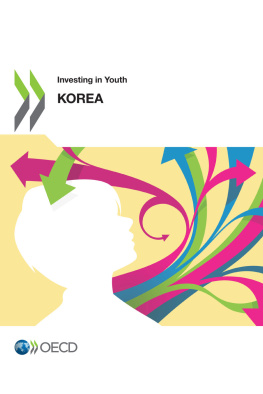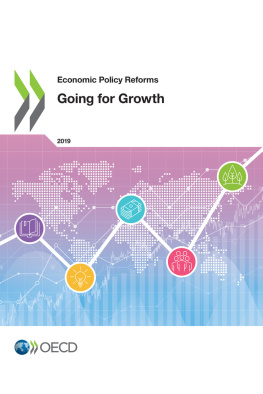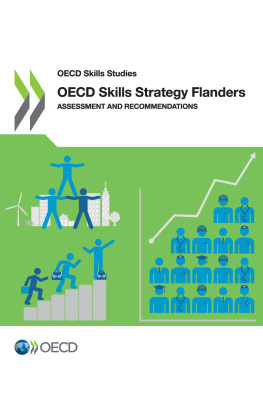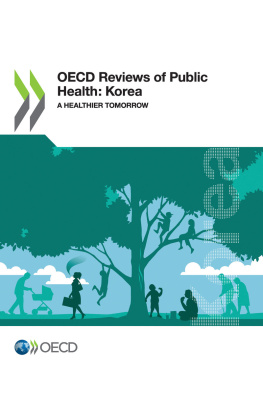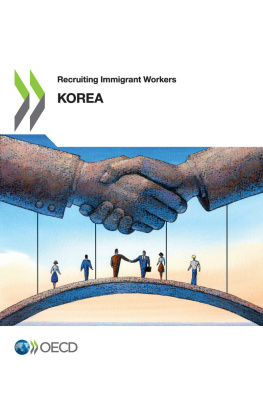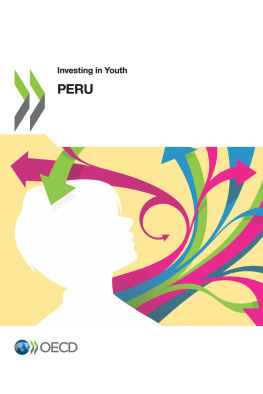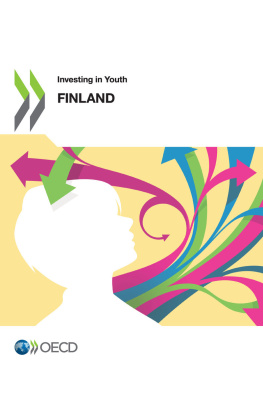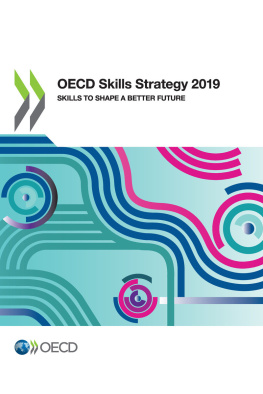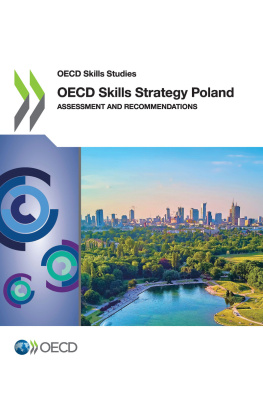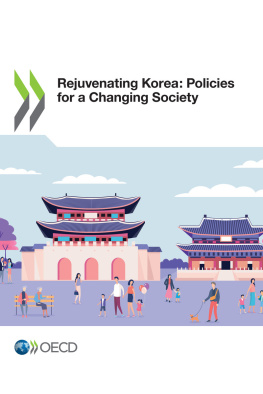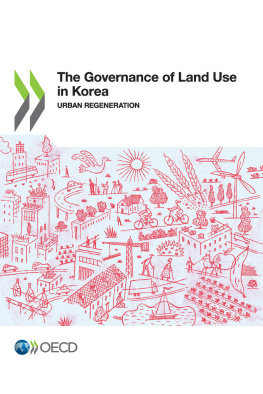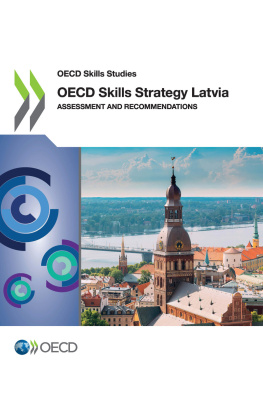OECD - Investing in Youth: Korea
Here you can read online OECD - Investing in Youth: Korea full text of the book (entire story) in english for free. Download pdf and epub, get meaning, cover and reviews about this ebook. year: 2019, publisher: OECD Publishing, genre: Politics. Description of the work, (preface) as well as reviews are available. Best literature library LitArk.com created for fans of good reading and offers a wide selection of genres:
Romance novel
Science fiction
Adventure
Detective
Science
History
Home and family
Prose
Art
Politics
Computer
Non-fiction
Religion
Business
Children
Humor
Choose a favorite category and find really read worthwhile books. Enjoy immersion in the world of imagination, feel the emotions of the characters or learn something new for yourself, make an fascinating discovery.
Investing in Youth: Korea: summary, description and annotation
We offer to read an annotation, description, summary or preface (depends on what the author of the book "Investing in Youth: Korea" wrote himself). If you haven't found the necessary information about the book — write in the comments, we will try to find it.
OECD: author's other books
Who wrote Investing in Youth: Korea? Find out the surname, the name of the author of the book and a list of all author's works by series.
Investing in Youth: Korea — read online for free the complete book (whole text) full work
Below is the text of the book, divided by pages. System saving the place of the last page read, allows you to conveniently read the book "Investing in Youth: Korea" online for free, without having to search again every time where you left off. Put a bookmark, and you can go to the page where you finished reading at any time.
Font size:
Interval:
Bookmark:
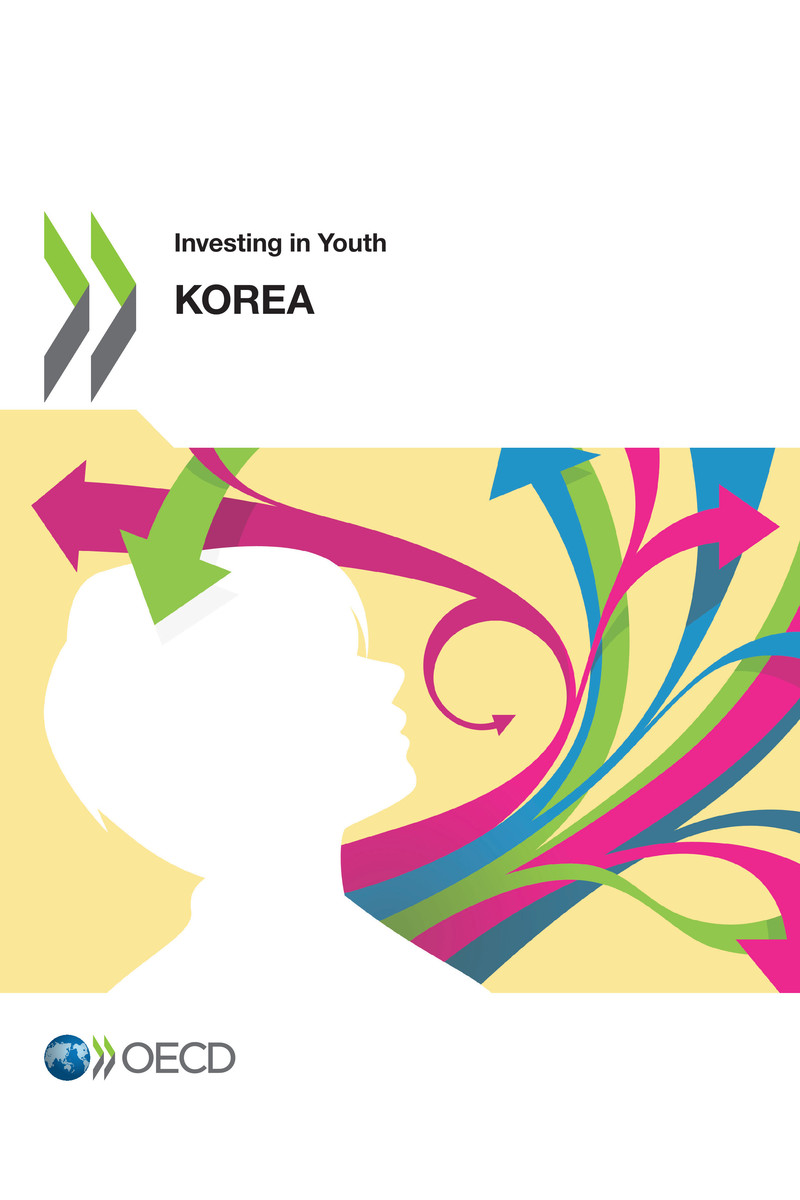
OECD (2019), Investing in Youth: Korea , Investing in Youth, OECD Publishing, Paris, https://doi.org/10.1787/4bf4a6d2-en .
As highlighted in the OECD Action Plan for Youth, successful engagement of young people in the labour market is crucial not only for their own personal economic prospects and well-being, but also for overall economic growth and social cohesion. Therefore, investing in youth is a policy priority in all countries, including Korea, requiring concerted action to develop education systems and labour market arrangements that work well together.
Following the launch of the OECD Action Plan for Youth in May 2013, the OECD is working closely with countries to implement the plans comprehensive measures in their national and local contexts and to provide peer-learning opportunities for countries to share their experience of policy measures to improve youth employment outcomes. This work builds on the extensive country reviews that the OECD has carried out previously on the youth labour market and vocational education and training (Jobs for Youth, Learning for Jobs and Skills beyond School), as well as on the OECD Skills Strategy.
The present report on Korea is the eleventh of the series Investing in Youth, which builds on the expertise of the OECD on youth employment, social support and skills. This series covers OECD countries and key emerging economies. The report presents new results from a comprehensive analysis of the situation of young people in Korea, exploiting various sources of survey-based and administrative data. It provides a detailed assessment of education, employment and social policies in Korea from an international perspective, and offers tailored recommendations to help improve the school-to-work transition. Additional information related to this review can be found on the OECD website ( http://oe.cd/youth-korea ).
This review is the work of the Social Policy Division of the Directorate for Employment, Labour and Social Affairs. Sarah Kups and Veerle Miranda (project leader) prepared the report, under the supervision of Monika Queisser (Head of the Social Policy Division). Lucy Hulett and Lauren Thwaites provided editorial support. The report benefited from useful comments provided by Mark Pearson (Deputy Director for Employment, Labour and Social Affairs) as well as by staff in the OECD Economics Department and the OECD Directorate for Education and Skills.
The OECD Secretariat would like to thank the Korea Labour Institute and the Ministry of Employment and Labour for their excellent support in carrying out this project and for organising the initial fact-finding mission in April 2018. Yoon-Gyu Yoon, Yoo Bin Kim and Minjeong Kim deserve special thanks for their considerable contributions to ensuring a successful completion of this project.
The OECD Secretariat is particularly grateful to Yoo Bin Kim for his continuous support throughout the review process with policy information and statistical support. This review uses survey micro data of the Economically Active Population Survey provided by Yoo Bin Kim, as well as survey micro data of the Youth Panel provided by the Korea Employment Information Service. The findings and views reported in this review, however, are those of the authors and should not be attributed to the Korean Labour Institute or the Ministry of Employment and Labour.
EAPS | Economically Active Population Survey |
GDP | Gross Domestic Product |
ISCED | International Standard Classification of Education |
KLIPS | Korean Labour and Income Panel Study |
KRW | Korean Won |
NCS | National Competency Standards |
NEET | Not in Education, Employment or Training |
NQF | National Qualification Framework |
PIAAC | OECD Survey of Adult Skills |
PISA | OECD Programme for International Student Assessment |
SMEs | Small and Medium-sized Enterprises |
VET | Vocational Education and Training |
A slowdown in economic growth is prolonging the transition from school to work for many young Koreans. The youth employment rate stands well below the OECD average and youth unemployment surpasses the OECD average since 2017. Rather than accepting a low-paid or temporary job in a highly segmented labour market, many young people prefer to continue investing in formal and informal education or spend a long time preparing for company entry exams. Korean youth are amongst the most educated and skilled in the OECD area, but the financial costs of education for the government and parents are high, as is the personal investment of young people in terms of time and energy devoted to studying. In addition, their skills do not always match labour market needs and many small and medium-sized enterprises struggle to fill positions as they are unable to offer the same working conditions as larger firms.
Awareness of the skill mismatch issue is high and the Korean government has launched a number of important initiatives in recent years to alleviate it. Measures include additional public funding for career guidance and counselling in secondary schools, (re)introduction of apprenticeships and Meister high schools to strengthen vocational education and training, incentives for tertiary institutions to offer more labour-market relevant degrees and advocacy for competency-based recruitment practices. These reforms follow international best practices and are likely to reduce the gap between skill supply and demand. However, relatively small adjustments could further boost the pay-offs of these reforms.
Font size:
Interval:
Bookmark:
Similar books «Investing in Youth: Korea»
Look at similar books to Investing in Youth: Korea. We have selected literature similar in name and meaning in the hope of providing readers with more options to find new, interesting, not yet read works.
Discussion, reviews of the book Investing in Youth: Korea and just readers' own opinions. Leave your comments, write what you think about the work, its meaning or the main characters. Specify what exactly you liked and what you didn't like, and why you think so.

